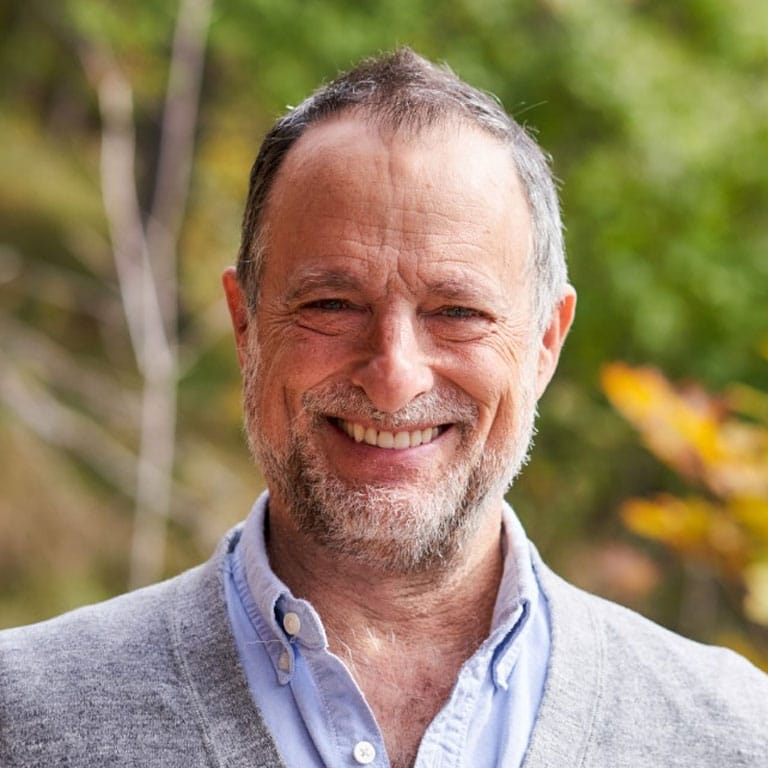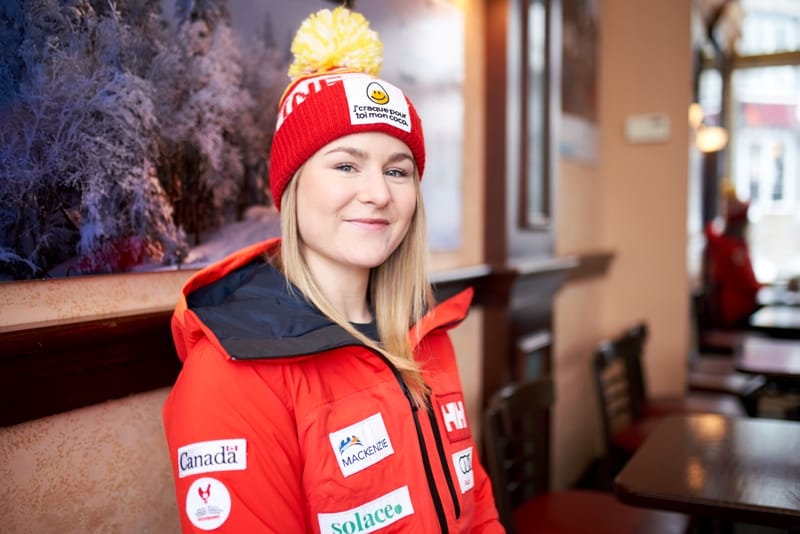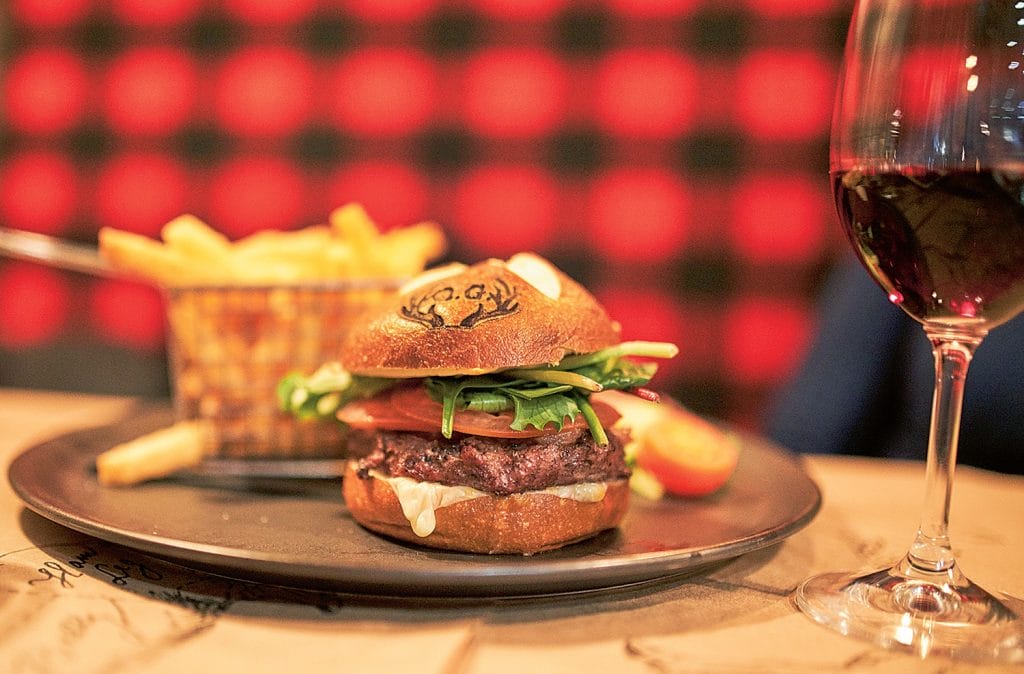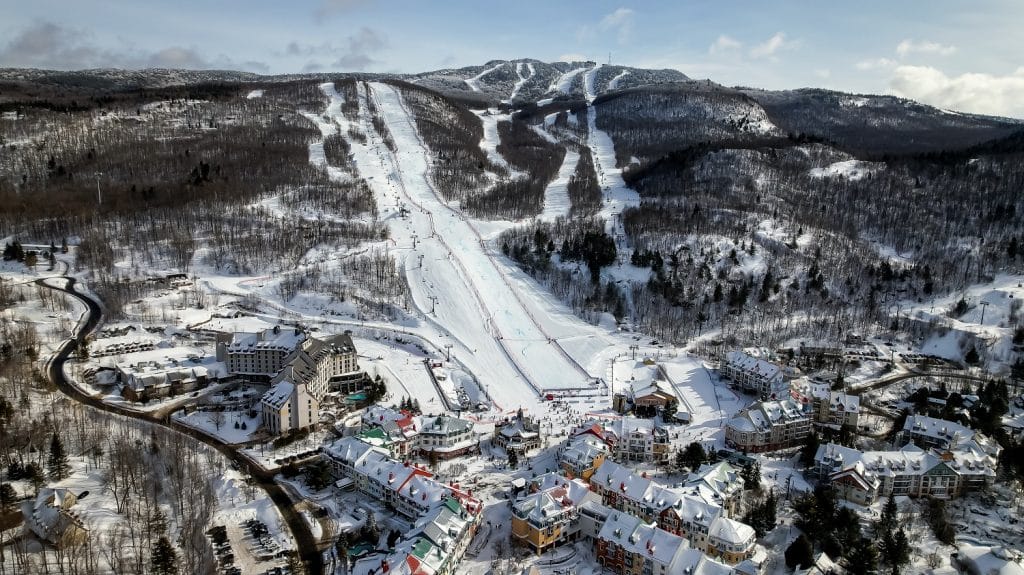Mission accomplished
Everyone’s happy, or almost everyone. The organisers report a positive outcome for the recent FIS Freestyle Skiing World Cup at Tremblant – after an absence of 12 years – with athletes singing the praises of the welcome they received and spectators thrilled by the skiers’ feats.
“Considering that it’s a return after several years, the results are fantastic,” stated Patrice Malo, president and chief operating officer of Mont Tremblant Ski Resort, in an interview with Tremblant Express just minutes after the medals ceremony closed the competitive part of the event held on the weekend of January 20 and 21. “We are really very satisfied. The sequence of events, the logistics, the spinoff…everything worked.”
After hosting the moguls competition from 1996 to 2005, the leading ski resort in the Laurentians turned it over to Val Saint-Côme and Mont-Gabriel. But the desire of the sponsors and the Fédération internationale de ski (FIS) to further increase the benefits contributed to returning the competition to Tremblant, at least until the end of the next Olympic cycle, in 2022.
“Moving is a big change and can be upsetting, but Freestyle Canada and Station Mont Tremblant pulled all stops to make it a success,” said Marc Monchamp, executive producer for Freestyle Canada. “Val Saint-Côme and Mont-Gabriel did incredible work over the years, but we serve the athletes, the FIS and our partners better when we maximize the visibility of the event.”

According to Mr. Monchamp, about 5,000 people attended the event on the mountain and a thousand saw it on the giant screen installed in Place Saint-Bernard. “The crowd was there. It’s extraordinary to have brought the competition to the village,” he added.
From a sports perspective, having three Canadians on the podium, including Justine Dufour-Lapointe on the top step in the women’s event, should usually be enough to make everybody happy.
The small clouds in the otherwise blue sky of the event? Difficult access to the site, a course that some saw as not sufficiently selective, and the second place for Mikaël Kingsbury – disappointing because of the high expectations raised by his incredible successes.
Sovereign until then with 13 consecutive victories in World Cup, including the previous six events this season, Kingsbury the king passed the crown to Ikuma Horishima. Spectators applauded their favourite more than warmly, but all had hoped for a 14th win, on Québec soil.

The relative difficulty of access to the top of the Flying Mile also had people talking. It took a good thirty minutes for the trickle of spectators trailing up one after another in a corridor created slopeside to reach the finish area. We saw several faces reddened by the work involved in the climb, but most of them were smiling.
“It was steep and demanding but we got there, so everything’s good,” said Michèle Bergevin, whose daughter Mikela is on the Québec bumps team.
While nothing much can be done about the break in Mikaël Kingsbury’s run of wins, Marc Monchamp thinks he has some solutions re the site access.
“We were surprised by the number of people who went up on foot,” he said. “Next year we’ll try to make the experience more pleasant by offering water, coffee, and benches to sit on. We’re also going to see if there’s a way the lift can be used safely to bring up the pedestrians.”
As far as the comments about the course’s lack of steepness are concerned, which were heard from several athletes and coaches including those from Australia and Japan in conversations with Tremblant Express, Marc Monchamp and Patrice Malo acknowledge them but are not disturbed by them.
“It’s all very subjective. I don’t think it was the easiest course on the World Cup circuit. I understand that the best of them like the course better when it’s steeper, but it’s part of the game,” said Mr. Monchamp.
According to Patrice Malo, the FIS approved the course, which means that it was at a completely appropriate level for a World Cup.

Alain Bisson47 Posts
Journaliste depuis plus de 30 ans, Alain Bisson a débuté sa carrière au Journal de Montréal à titre de journaliste à l'économie. Au cours des dernières années, Alain fut également directeur du pupitre et directeur des contenus week-end à La Presse. / A journalist for more than 30 years, Alain Bisson began his career at the Journal de Montreal as a journalist covering economics. In recent years, Alain was also weekend content director and bureau chief for La Presse.












0 Comments